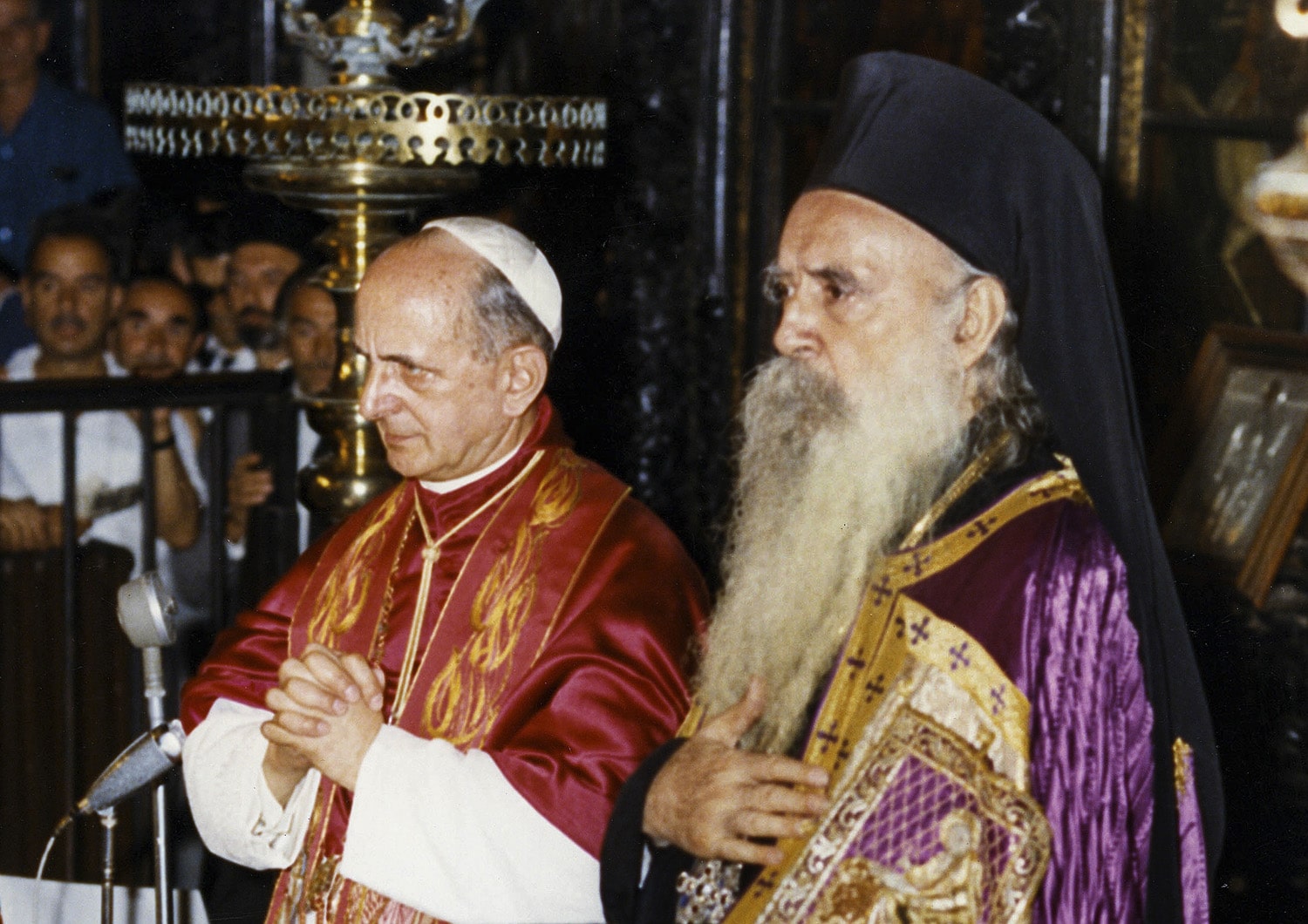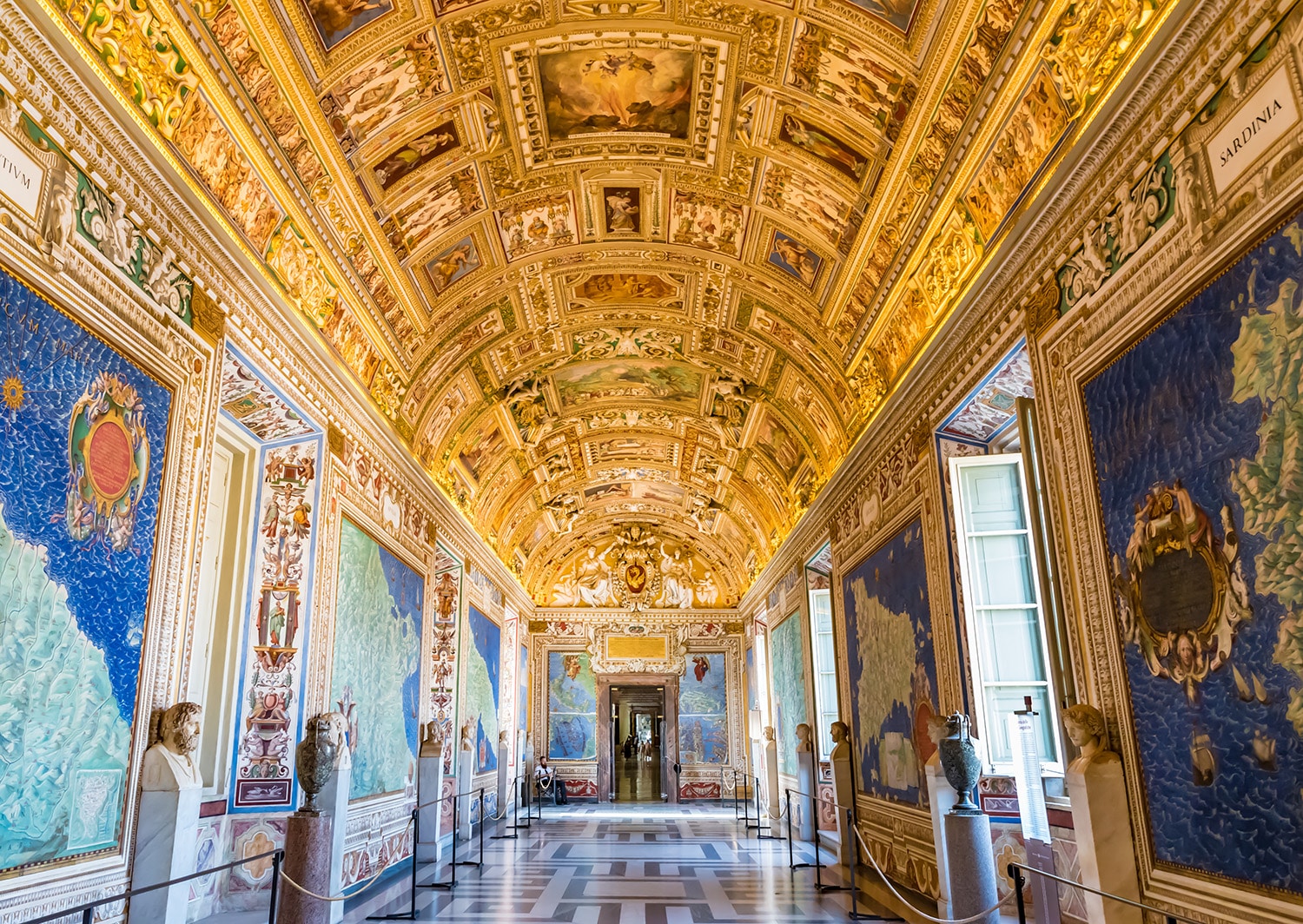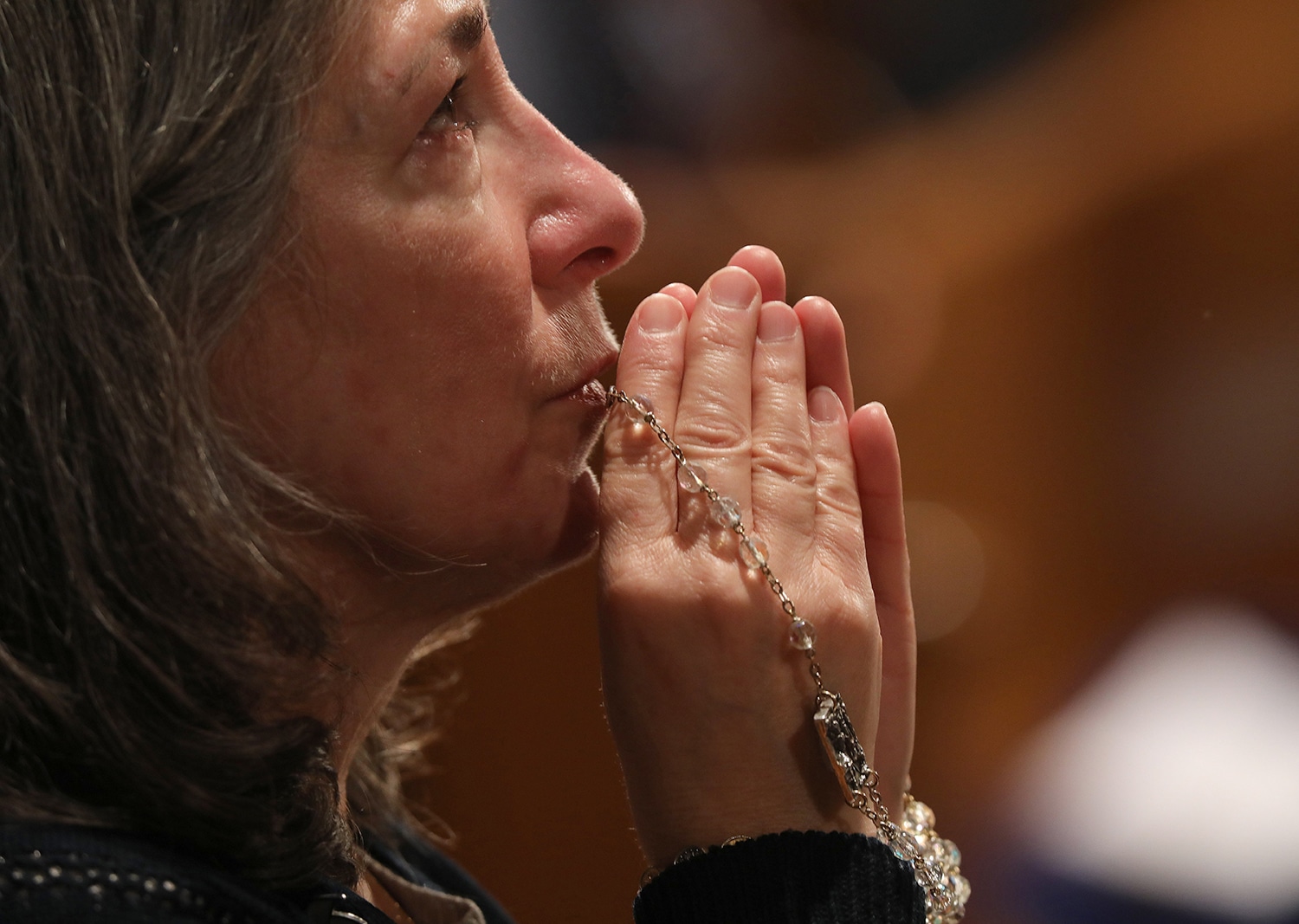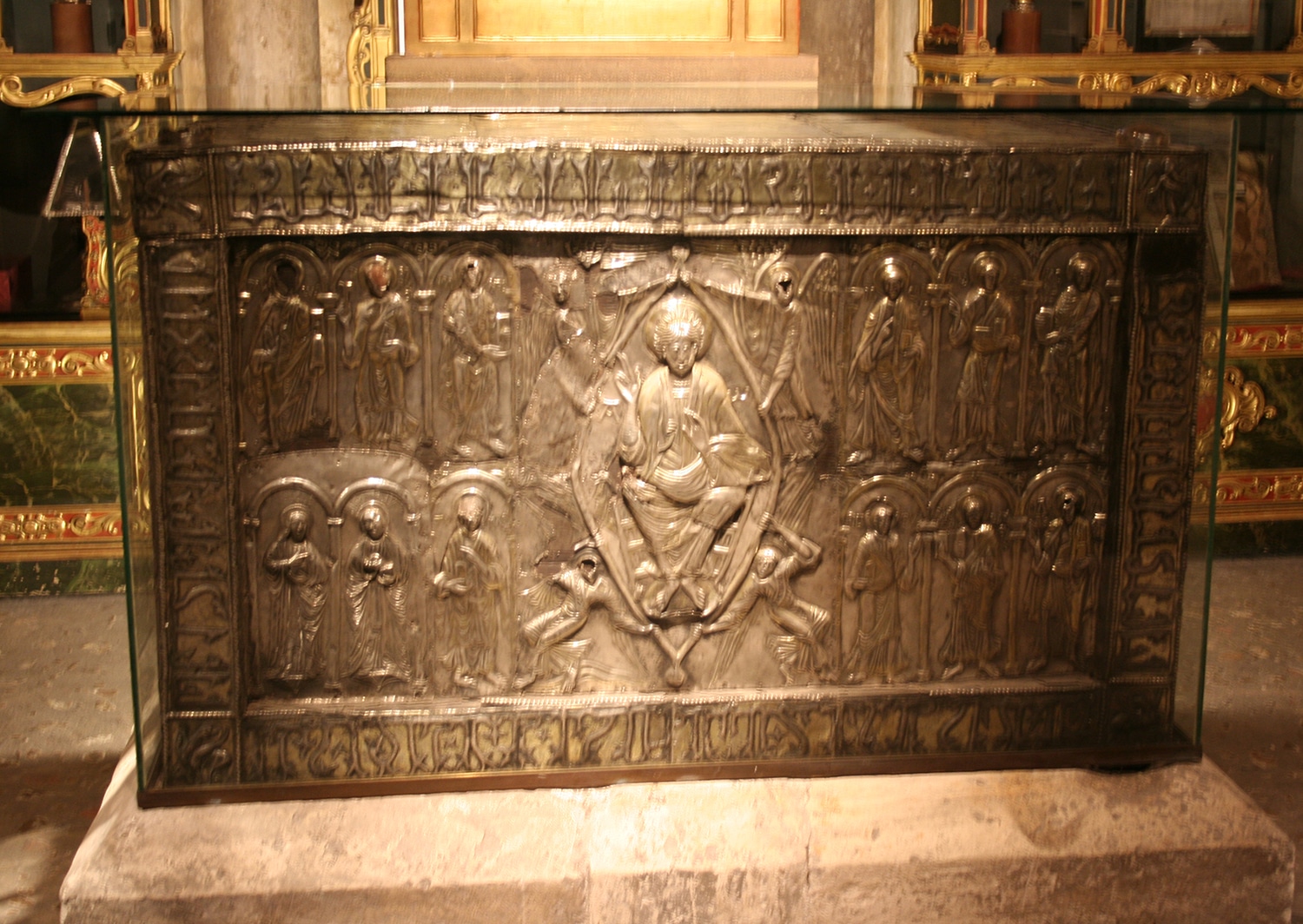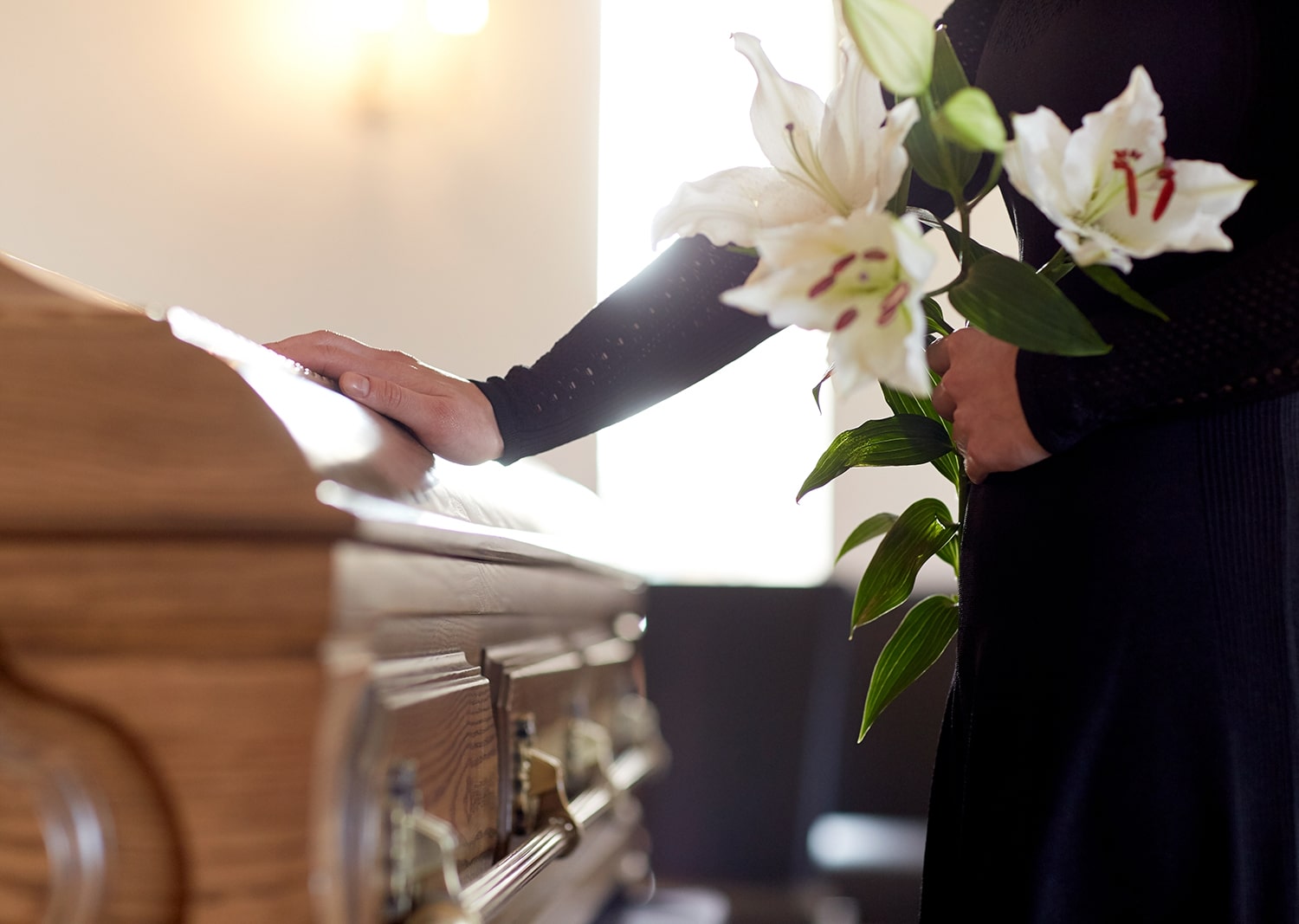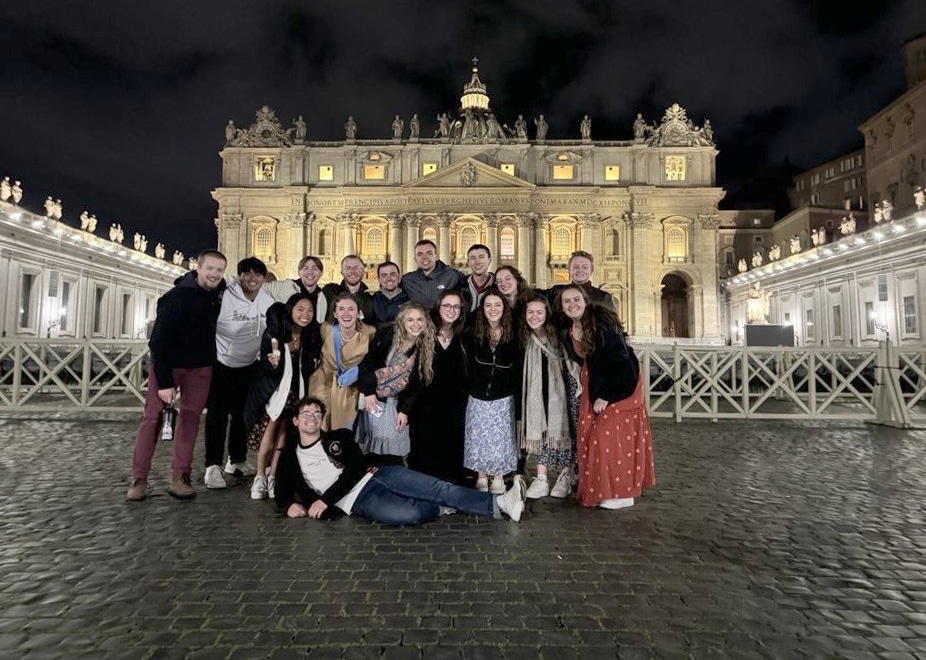Finding the right word to describe it was difficult. Electrifying? Unbelievable? Risky? People had this difficulty in 1964 when they discussed Pope St. Paul VI’s unprecedented visit to the Holy Land.
He would be the first pope since St. Peter to visit the places where Jesus was born, lived, performed miracles, taught, die and rose from the dead, and the first to leave Italy in a very long time.
Paul VI’s trip was special, not just because it shattered tradition. In a world weary of arguments and divisions, it energized people, giving them hope that disputes can be resolved, wounds can heal, and, most of all, that they can right wrongs.
The world watched as the pope departed Rome aboard a jetliner of Italy’s international airliner, re-painted in the papal colors of gold and white for that one flight.
Hostilities abounded
For centuries, Western and Eastern Christianity stood apart, hostile to each other, their mutual animosity dulling the impact of the Gospel upon the world. As the pope overflew Greece, the Greek king, an Orthodox Christian and a champion of Orthodox interests, radioed the papal plane, pledging his prayers for a successful journey.
Muslims and Catholics had long despised each other. Jet air force fighters of predominantly Muslim Turkey escorted the pope’s plane as guards of honor when it passed through Turkish air space.
At the airport in Amman, the Jordanian capital, the first stop, Jordan’s King Hussein, a Muslim and an important Arab leader, cordially greeted the Catholic pope. After praying at the holy sites in Jordan, the pope crossed the heavily guarded border, a symbol of enmity between Jordan and Israel. Israeli President Zalman Shazar, with great respect, welcomed him to the Jewish state.
Orthodox Patriarch Athenagoras came from Istanbul to meet the pope at a place heavy with memories of Jesus, the Mount of Olives, in Jerusalem. They embraced. They talked. St. Paul VI gave the patriarch a beautiful chalice adorned with the Cross of Jerusalem.
The gift was inspired. It reminded Catholics and Orthodox that while important disagreements remain, their common faith in the Eucharist unites them.
After 69 years, it must be admitted that all the high hopes have not been realized. Witness the bloodshed in Gaza.
Paul VI’s extraordinary lesson
Still, Paul VI taught people a lesson: Be courageous. Be inventive. Take the first step, even if only a tiny step forward.
Pope St. Paul VI’s trip was a first step. It bolstered cooperation between the papacy and Jews. On the Church’s part, it was a sign of sincerity as the Church aggressively moved against anti-Semitism, purging the liturgy, religious education materials, and seminary instruction of elements insulting to Jews.
Major Muslim nations now come to the Holy See to facilitate common causes.
Most of all, St. Paul VI’s choice of the Holy Land as a place to visit sent a message. Jesus Christ lived a human life on the soil of the Holy Land. Risen, Jesus is still among us, the way, the truth and the life. His words bring peace.
The 1964 papal journey was the first of many international trips by Paul VI. He traveled to Hong Kong, Iran, Australia, and Switzerland, among many places, and to New York in 1965, where he addressed the United Nations, pleading for peace and justice.
St. Paul VI saw witnessing to Christ, far and wide, as critical. In The Philippines, in 1970, he was wounded in an assassination attempt. Undaunted, he continued his trip.
Seeing changes in Latin America, he flew to Colombia to join the continent’s bishops in exploring ways for the Church to better serve.
All his successors, Popes St. John Paul II, Benedict XVI and Francis, have followed his example, circling the globe, testifying that the Church is the living voice of Christ, the only hope of the world.

